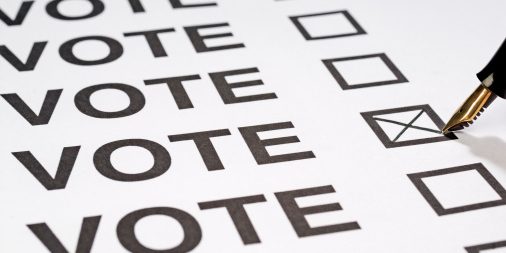The California secretary of state announced that a veto referendum seeking to repeal Senate Bill 1137 (SB 1137) had qualified for the 2024 ballot on Feb. 3.
If upheld by voters, SB 1137 would require all oil or gas production facilities or wells within a health protection zone to comply with new regulations. Health protection zones are areas within 3,200 feet of a sensitive receptor. Sensitive receptors include residences, education facilities, daycare centers, colleges and universities, community resource centers, health care facilities, live-in housing, prisons and detention centers, and any building housing a business open to the public.
SB 1137 would also require operators with a production facility or well with a wellhead in a health protection zone to develop a leak detection system for certain chemicals and detailed response plans. The law would also require the Air Resources Board (ARB) and the State Water Board to adopt performance standards for the emissions detection system. The facilities would be required to post contact information to receive complaints, limit sound levels, limit light generation, institute dust prevention measures, abide by vehicle speed limits, comply with air district requirements, and submit a chemical analysis of produced water to California Geologic Energy Management Division (CalGEM). With signatures verified, the law is now on hold until the election in November 2024.
Stop the Energy Shutdown is leading the campaign to repeal the law. The number of signatures required was 623,212. The campaign filed 978,610 signatures. The final random sample count found that at least 687,058 signatures were valid.
The committee reported over $20 million in contributions in its latest campaign finance filing. It has received endorsements from the California Independent Petroleum Association (CIPA), E & B Natural Resources Management Corp., Macpherson Oil Company LLC, Sentinel Peak Resources California LLC, Signal Hill Petroleum, Inc., and the State Building and Construction Trades Council of California. California Independent Petroleum Association (CIPA) said, “If implemented, SB 1137 would increase CA’s already high gas prices by decreasing our energy supply and replacing it with expensive imported foreign oil that tankers must transport from counties that do not uphold the same environmental or labor standards.”
The referendum is opposed by Central California Environmental Justice Network, Sierra Club California, and Voices in Solidarity Against Oil in Neighborhoods (VISION). Gov. Gavin Newsom (D) released a statement saying, “I proudly signed SB 1137 last year to stop new oil drilling in our neighborhoods and protect California families. Big Oil knows that California is moving beyond fossil fuels, so on their way out these corporations are doing everything they can to squeeze out profits as they pollute our communities. We’re not standing for it.”
SB 1137 passed the California State Assembly by a vote of 46-24 with 10 not voting on Aug. 30, 2022. On Aug. 31, it passed the California State Senate by a vote of 25-10 with five not voting. It was signed by Gov. Gavin Newsom (D) on Sept. 16.
In 2024, California voters are already set to decide on seven measures. Voters will be deciding on another veto referendum in 2024 that would repeal a law to establish a fast-food council to regulate working conditions in the industry. Four other citizen initiatives have qualified for the ballot related to pandemic prevention research and funding, the state’s minimum wage, remediation for labor violations, and vote requirements for new taxes. The state legislature also referred a constitutional amendment to the March 2024 ballot that would repeal the local voter requirement for publicly-funded housing projects classified as low rent.
Additional reading:


